We’ve all been there. You’re doing your morning skin routine, and no amount of light-adjusting or mirror-cleaning is making your skin look any brighter. While this could be due to many factors, one thing to consider is what you’re eating — could what you’re putting in your body be affecting your outer glow?
While the American Academy of Dermatology warns against changing up your diet drastically without consulting your doctor or jumping on any quick-fix TikTok food fads, experts do agree that what you eat can affect your skin; specifically, eating certain nutrients can help to up your skin’s moisture retention and protect against dehydration and loss of elasticity, which in turn could make your skin look and feel healthier. Plus, a lot of these foods — such as creamy avocados and juicy grapes — are just plain delicious and may already be in your rotation.
Whether you’re blending them into your smoothie or plopping them on top of your cottage cheese bowl, here are some foods that can restore radiance to your skin.
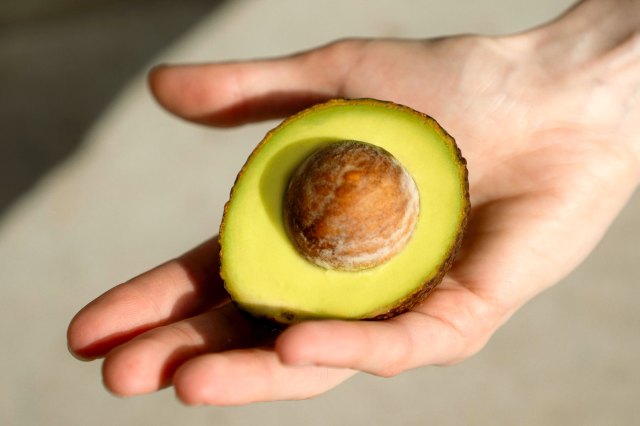
Avocados
Turns out, your avocado toast could make you more luminous. Research suggests that the monounsaturated fatty acids and phytonutrients in avocados have a positive effect on many, if not all, of our organ systems — and that includes skin, the largest organ. In one study from UCLA, women who ate an avocado daily for eight weeks showed improved elasticity and firmness in their facial skin compared to women in a control group. Additionally, avocados contain carotenoids that have cancer-fighting properties. If avocado toast isn’t your thing, make a batch of guacamole, add it to your smoothie, or try this refreshing avocado water.

Tomatoes
Tomatoes are so underrated. Sure, they’re great for tossing on salads or topping a pizza, but they’re also a superfood that’s high in lycopene and vitamin C — antioxidants that are vital to maintaining healthy skin. Lycopene is also a carotenoid that helps protect your skin from UV sun damage and may even be useful in preventing wrinkles. Tomatoes are delicious with just a sprinkling of sea salt, but try grilling them at your next cookout or adding furikake for this twist on a tomato sandwich.
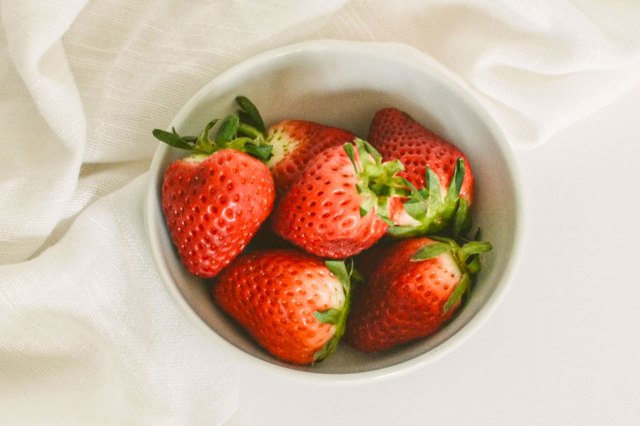
Strawberries
What’s not to love about a bowl of juicy strawberries? Especially if you know they’re going to give your face a glow-up. Strawberries are full of fiber, antioxidants, and lots of vitamin C, which is known to increase collagen production and provides protection against harmful UV rays. Use them as a topping for your acai bowl, and then take what’s left over to make a dessert that cleverly pairs fresh strawberries with balsamic vinegar.
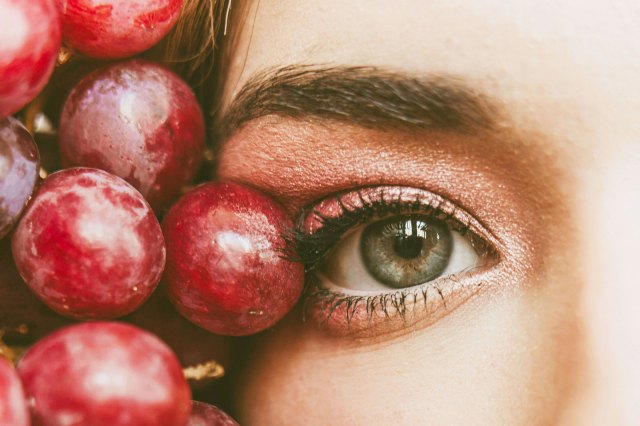
Red Grapes
In our opinion, grapes are best when frozen and then eaten like a bunch of small popsicles. But however you enjoy them, red grapes will give your skin a boost — they’re filled with an antioxidant called resveratrol, which is known to protect against UV damage and also has shown promise in slowing skin aging. If you don’t want to eat them frozen, try going in the other direction and baking them to make a jammy companion to cheese. Alas, the red grapes in the wine you’re serving with that charcuterie board don’t count — there isn’t enough resveratrol in a glass to make a difference, and alcohol can actually be drying to your skin.
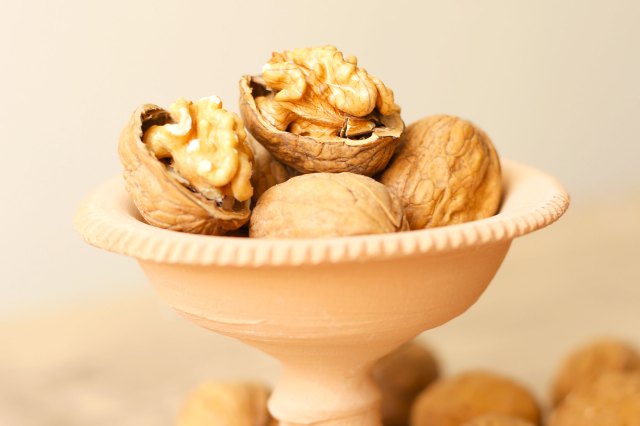
Walnuts
Walnuts have long been used in folk medicine to treat skin ailments; in some cultures, a paste made out of the nut and sometimes the leaves is applied to wounds. But they’re not just beneficial topically. Walnuts contain valuable omega-3 and omega-6 fatty acids, as well as zinc, vitamin E, selenium, and protein, making them a smart addition to your diet to enhance skin health. You can eat them straight out of the bag, sprinkled onto your oatmeal, or blended with parsley, garlic, parmesan, and olive oil in a tasty, fresh pesto.
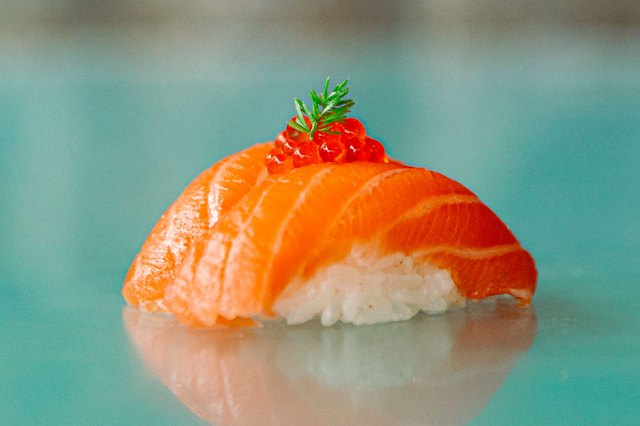
Fatty fish
You’ll be happy to know that your favorite spicy salmon roll not only tastes good, but is good for keeping your skin looking fresh, too. The omega-3 fats in fatty fish such as salmon, mackerel, and herring help reduce inflammation, which contributes to skin redness and irritation. Also, those trendy salmon bowl recipes making the rounds on social media are actually delicious. Not a fan of fish? You can also take fish oil capsules — but as with all supplements, check with your doctor first to make sure they’re appropriate for you and to avoid interactions with other medications you might be taking.
This article is for general informational purposes only.
Affiliate Disclaimer Medical Disclaimer







 Unique Beauty is free for all users.
Unique Beauty is free for all users.